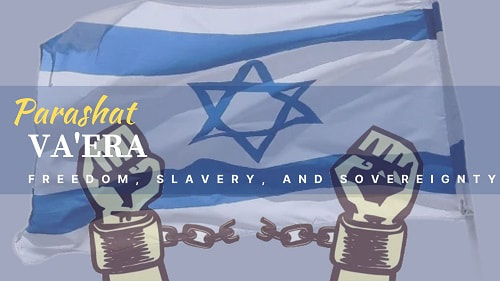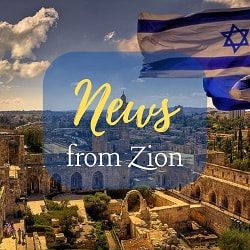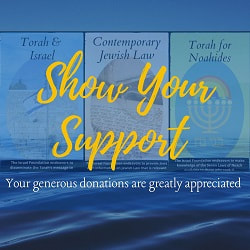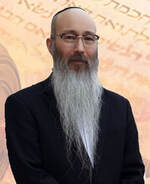|
By: HaRav Menashe Sasson מאת: הרב מנשה ששון Parashat Va’era is permeated with HaShem’s command that Moshe Rabbeinu and his brother Aharon petition Par’o to “let the Children of Yisra’el go out of his land.” Shemot 6:10-11. This command is repeated no less than eight times throughout this Parashat, in various forms, including the famous injunction “Let My people go, [so] that they may serve Me.” See, Shemot 6:13, 6:29, 7:2, 7:15-16, 7:26, 8:16, 9:1, 9:13. Par’o, as we know, did not comply. Parashat Va’era then describes seven of the ten plagues that HaShem inflicted upon Misrayim. The Hebrews were slaves in Misrayim; the Exodus freed them from that slavery. One might thus conclude that following their exodus from Misrayim, the Hebrews were a “free” people. If “freedom” is the opposite of slavery, then the Hebrews, after leaving Misrayim, should have been “free” to act without constraint. But they weren’t. They were taken to Mount Sinai, given the Torah and all its commandments — Torah laws — and then led to Eretz Israel and commanded to conquer the Land. As slaves in Misrayim, the Hebrews were obligated to follow the laws of their slave masters. If they failed to do so, there were consequences. After the exodus from Misrayim, the Jews (formerly the Hebrews) became obligated to follow the laws of the Torah. Likewise, if the Jews failed to follow the laws of the Torah, there were (and still are) consequences. It’s true the consequences for failing to obey their human slave masters in Misrayim were likely more immediate than the consequences for failing to obey the laws of the Torah, but this is not a qualitative difference; it is merely a difference of timing. As proof of this point, recall that HaShem did not instruct Moshe to “Let My people go, so that they may be free.” Rather, His instruction was, “Let My people go, [so] that they may serve Me.” So, we see that, although the exodus from Misrayim resulted in the termination of Misrayim control over the Hebrews, the exodus did not result in the Hebrews being able to act without constraint. Rather, the exodus simple changed the identity of their Master. Being able to act without constraint is a better description of sovereignty than it is of freedom. Sovereignty, by definition, includes, among other things, the legal right to make and enforce laws. The Misrayim government was sovereign in that it possessed the legal right to make and enforce slavery laws against the Hebrews. HaShem, the Master of the Universe, is the ultimate sovereign. He created everything, including the Torah and all of its laws. The Misrayim government, when it existed, was sovereign in its time and place. Unlike the Misrayim government, the Master of the Universe was, is, and will always be sovereign over everything, for all time. “Freedom,” on the other hand, describes the ability (or lack thereof) to make free-will decisions within the context of the laws which have been established by a sovereign. Under a Misrayim, Socialist, or other type of dictatorial sovereign, the range or scope of that free-will is quite narrow. By contrast, under a Torah law-based system, the range or scope of free-will is quite broad. Some people today may believe that they are “free” to decide whether to follow the laws of the Torah or, G-d forbid, to completely reject the authority of those laws. These individuals, however, confuse “freedom,” the ability to make free-will choices within the context of rules established by the sovereign, with sovereignty itself, which is the legal right to make (or exempt themselves from) laws. When a person chooses to replace the Torah with something else, that person is not making a choice between individual sovereignty and slavery, but rather, between whether his “master” will be the Master of the Universe (HaShem) or some other, inferior, master. Take, for example, Socialism and its close cousin Communism, which seek to abolish religion (among other things) so that there is no (apparent) authority which is higher than the State. Those who follow this path by substituting the lowercase “g” of government for the uppercase “G” of G-d have merely substituted one “master” for another. Both have laws and both have methods of enforcing their laws. Those who make the small “g” of government their god soon discover that their range or scope of free-will decision making — their “freedom” — is quite narrow. A currently-popular method of implementing Socialism is through use of the god of radical environmentalism. Fundamental among the tenets of radical environmentalism is the belief that maintaining the earth in its “natural” state is more important than providing for the needs of man, and that mankind is the ultimate threat to the environment. Thus, radical environmentalism promotes the small “g” of government to advocate for laws that, for example, purport to control climate change (formerly known as “global cooling,” until it was determined that the earth is not cooling); restrict the development of land; and control the number of children that are born, either through abortion or through various other means of population control. The radical environmental agenda, like its Socialist parent, is diametrically opposed to the Torah. “HaShem created Mankind in His own image, in the image of G-d, He created him, male and female, He created them. And HaShem blessed them, and HaShem said to them, be fruitful and multiply, replenish the earth, and subdue it. . . .” Bereshit 1:27-28. “Subduing” the earth, of course, does not mean destroying the earth. It merely means harnessing its potential and putting that potential to productive use for the benefit of mankind. Lastly, there is the god of hedonism, a philosophy that essentially provides that each person can decide for himself what conduct is moral, immoral, permitted, or prohibited. Although one might erroneously believe that the ability to make such choices constitutes individual sovereignty, the truth is that such individuals are merely enjoying the freedom to make free-will decisions within the framework which has been established by the sovereign under which they live. For proof of this fact, one need only look to the situation where the individual’s determination of what is permitted conflicts with the rule laid down by the sovereign. This approach, obviously, is also diametrically opposed to the Torah. There is a famous saying that, although a person is entitled to his own opinion, he is not entitled to his own facts. Although a person may be of the opinion that he is “free” to choose his god, that “freedom” does not change that fact that HaShem is the Creator and Master of the Universe, and that it is the laws of the Torah to which each of us (Jew and Gentile, alike) will ultimately be held accountable. As humans, we usually don’t fully know what future consequences will result from our actions. Accordingly, it’s not surprising that events don’t always unfold the way we anticipated or hoped. HaShem, the Creator and Master of the Universe, on the other hand, gave us the Torah as our “owner’s manual” for life. Living within the laws of the Torah, although perhaps not always perceived as being easy, especially when one is accustomed to living according to a different value system, is actually the best and, perhaps surprisingly, the easiest way to live life — easiest because HaShem knows exactly what the consequences will be for each and every one of our actions and, being the loving and merciful G-d that He is, He gave us the Torah to guide us and help us make the most of our lives and the lives of others. May we all be blessed to exercise our free-will — our freedom — to choose HaShem and His Torah. שבת שלום Shabbat Shalom! Copyright © The Israel Foundation. All Rights Reserved.
0 Comments
Your comment will be posted after it is approved.
Leave a Reply. |
THE ISRAEL FOUNDATION





